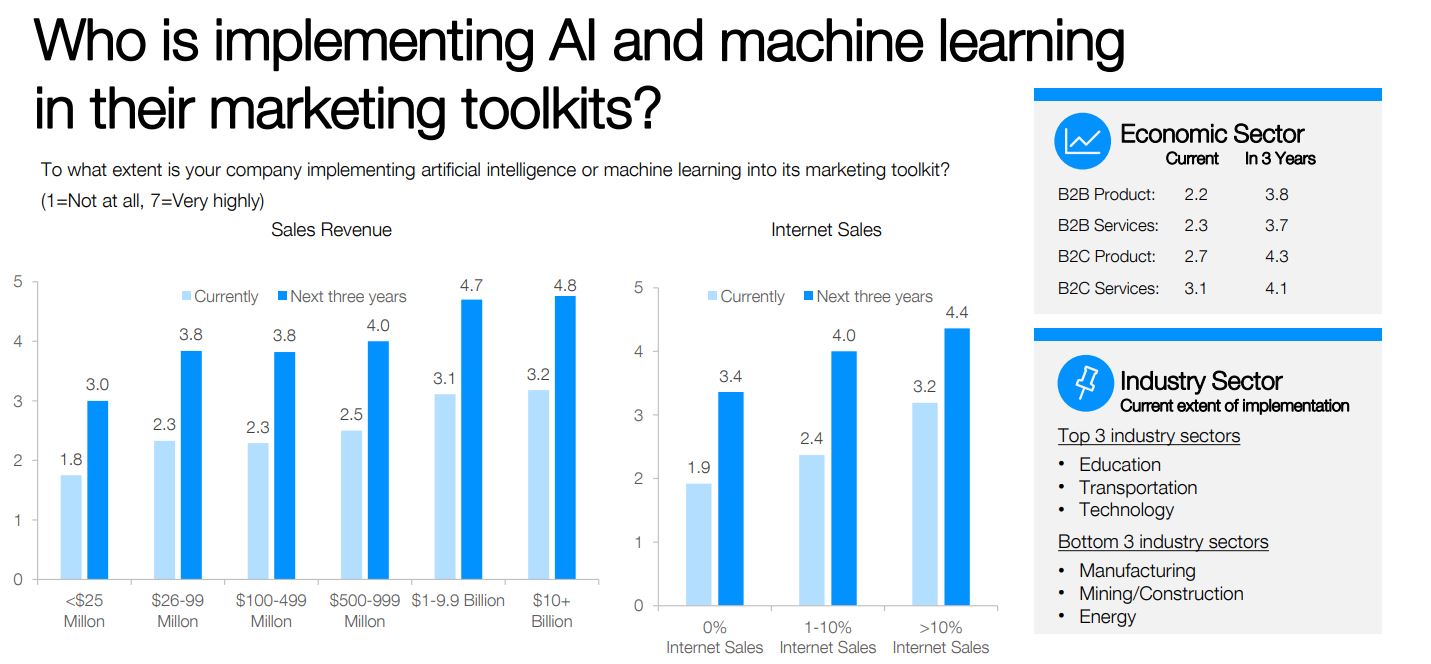We live in an age where technological advancements are happening exponentially, and technologies like Artificial Intelligence are at the center stage.
Companies spend millions of dollars each year on research and development to refine their business practices and achieve higher ROI. Naturally, the market size of Machine Learning has seen considerable growth in the past. It is expected to rise at an even greater rate, creating countless jobs for data scientists and machine learning engineers.
The chart below shows the projected growth rate of the Machine Learning market size in North America from 2017 to 2029.

Source: Fortune Business Insights
However, as the market grows, the supply of skilled machine learning engineers is not expected to rise at the same rate. Experts predict the industry will face a drastic shortage of machine learning engineers in the coming years due to a lack of skilled talent.
A study by S&P Global discovered that only 23% of the respondents identified themselves as machine learning engineers, indicating a short supply. Following the law of demand, the industry responds by making machine learning engineers one of the most handsomely paid employees. Still, many skilled individuals are unable to find a good machine learning engineering job.
Who are Machine Learning Engineers and What Do They Do?
Machine Learning engineers are highly specialized professionals who work solely on machine learning technologies and algorithms. In other words, they are computer programmers who design programs that train themselves by learning from data and automated predictive models.
There are several techniques based on the type and volume of the data, depending on the nature of the business challenge being addressed. Each of these techniques, as well as how to use them, must be understood by a machine learning engineer.
Machine learning engineers sit at the nexus of software engineering and data science, possessing talents from both fields due to the multidisciplinary nature of the profession. They require an understanding of data models and structures and the ability to deploy those models in practical software.
Machine learning and Artificial intelligence are expected to revolutionize the business world, and machine learning engineers will be the focal point. Although automation might take some jobs away, many more new jobs will be created and will be in great demand. Professor Erik Brynjolfsson of MIT says, “Although economic effects of ML are relatively limited today, and we are not facing the imminent end of work as is sometimes proclaimed, the implications for the economy and the workforce going forward are profound.”
Machine Learning engineers often work closely with data scientists, architects, and engineers to solve complex problems using advanced ML techniques like deep learning and supervised learning.
How to Land Your Dream Job as a Machine Learning Engineer?
Machine Learning is a highly technology-based field of study, but it’s finding its way into many unrelated areas like healthcare, finance, insurance, and even marketing. A recent study by Deloitte found that 56.5% of marketers use Machine Learning and AI-based technologies for better content personalization and improved customer outreach. The same study also concluded that Education, Transportation, and Technology are the top three sectors that use ML techniques in their marketing toolkits.

Source: Deloitte CMO Survey
As you can see, machine learning has numerous applications, and companies are always looking for talented machine learning engineers to realize their business goals. Machine Learning is a multidisciplinary field of study, so an individual must have a robust understanding of several domains, primarily computer science, mathematics, algorithms, and statistics. That is why there is no right way to get a good machine learning job, as a person in any of the above-mentioned fields can be a good machine learning engineer at a respectable organization.
Regardless, some methods are tried and tested and have a better track record of success. Benchpoint suggests the following course of action for professionals looking for well-paid machine learning engineering jobs.
Step 1: Get an Undergraduate Degree
The primary step to being a machine learning engineer is to get an undergraduate degree.
Machine learning engineers have to work on complex problems involving computer algorithms, programming, and statistical modeling.
In other words, the work is highly technical so an undergraduate degree in computer science, mathematics, engineering, or statistics would be the most optimal. However, degrees from other domains like physics or business are also suitable, given that the candidate has solid technical skills.
Step 2: Cement your Knowledge of Software Engineering and Data Science
After getting an undergraduate degree, it is time to transition into the technical domains and consolidate your fundamental concepts.
You should focus on building strong conceptual knowledge of software engineering, coding, software development, and data analytics. A competent machine learning engineer is expected to be adept in all of the aforementioned fields of study.
Enroll in courses to gain additional knowledge about the areas where you’re lacking. For instance, signing up for a software development course could be a great idea if you’re good at data science and analysis but lack programming skills. On the other hand, people who are expert coders but want to learn more about data science should enroll in a corresponding course.
Step 3: Get initial experience as a Software Engineer or Data Scientist
The next step is to test the knowledge and skills you’ve acquired and test them in the corporate world.
In addition, machine learning engineering candidates should focus on building a compelling resume that shows a demonstrated history of working as a software engineer, data scientist, or similar role. Hence, you should start looking for job opportunities as a software developer, software engineer, data scientist, data engineer, or similar professions.
Working in one of the above-mentioned roles will not only cement your theoretical and practical knowledge but will also give you valuable experience. Companies hiring machine learning engineers look for candidates with a proven track record in the field of software engineering or data science.
Step 4: Acquire Necessary Skills
Having a diverse portfolio of critical skills is vital for excelling as a machine learning engineer. ML engineers must have a solid understanding and hands-on experience with programming languages like Python, R, SAS, C/ C++, and Julia. As per a report released by Towards Data Science, 44 % Machine Learning engineers prefer using Python as their most preferred language.

Source: The Economist
The above image shows the increasing popularity of Python as the most popular coding language for machine learning professionals. It is slightly behind Java and C/ C++ and is quickly catching up. Consequently, aspiring machine learning enthusiasts should have a firm grip and proven experience in these languages.
Step 5: Work on Projects with Real-life, Practical applications
After refining your skills and consolidating your theoretical knowledge, it is finally time to use what you have learned in the real world. The best way to do this is by working on projects that have practical applications that will highlight your capabilities to solve complex problems.
Your capacity to comprehend and deliver at each stage of a project will be demonstrated to potential employers by successfully completing a machine learning engineering project and recording it in a portfolio.
Step 6: Get a Master’s Degree/ PhD
Getting a Master’s degree will expose you to the latest advancements in the field of machine learning and artificial intelligence.
A master’s degree certifies that an individual is an expert and has specialized knowledge of a particular subject. Moreover, having a Master’s degree will open the doors to managerial positions and other roles in upper management of global companies.
For those who have a Master’s degree and still want to pursue higher education, getting a Ph.D. from a reputed institution is the next objective. Additionally, a lot of research is being done on AI and machine learning, mostly by major tech firms like Apple, Google, Amazon, and Microsoft. The future of machine learning may very well be decided by these research jobs.
Freelancing can be a lucrative and adaptable professional career option because some firms that can’t afford a full-time machine learning team hire freelance machine learning experts to create and execute specific ML systems.
Step 7: Keep Innovating and Learning
Machine Learning is a continually evolving domain with new advancements happening every day in different corners of the world.
The rate of technological innovation in the field of Artificial Intelligence and Machine Learning is growing at an exponential rate with no signs of slowing down. The best way to keep up with the constantly changing technological world is to understand it thoroughly.
At BenchPoint, we believe that the best machine learning engineers always strive for excellence, technological progress, and innovation.
Conclusion
Machine Learning and Artificial Intelligence are at the forefront of today’s technological environment, creating a consistent demand for skilled professionals like data scientists and engineers.
Machine learning engineer is a relatively new job profile and is seeing tremendous growth opportunities with corporations looking to hire competent individuals. Still, many talented ML engineers often struggle to get the best machine learning jobs.
For more information, contact our organization. We’re healthcare IT recruiters and our renowned for having years of experience in the area.
We’ll be pleased to assist you with your job search and, in the process, help you develop a solid resume.
